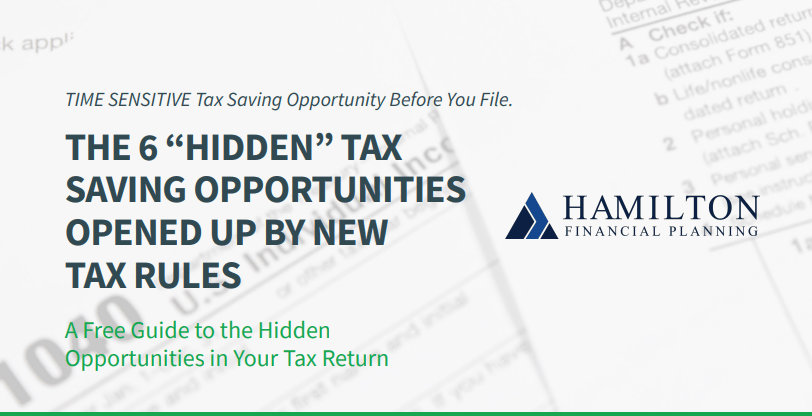
By Scott Hamilton, CFP®
There’s a lot of confusing financial jargon out there, and choosing a financial advisor can feel like navigating a maze. How do you know you’re getting advice that truly puts your interests first? The answer lies in two key terms: fee-only and fiduciary. A fee-only fiduciary financial advisor can make all the difference in building a trusted relationship and a solid financial future.
Let’s explore why working with the right advisor is so important.
Table of Contents
Understanding the Terms
When you’re looking for a financial advisor, understanding how they’re compensated is crucial.
The term “fee-only” is one of the most important distinctions you can find.
- Fee-only: This means the financial advisor is compensated directly by their clients for their services, typically through an hourly rate, a flat fee, or a percentage of the assets under management. Fee-only advisors do not earn commissions from the sale of any financial products, such as mutual funds, annuities, or insurance policies. This simple structure reduces a major source of potential conflict of interest.
The second critical term is “fiduciary.”
- Fiduciary: A fiduciary is a person or organization that acts on behalf of another person or persons, legally and ethically bound to put their clients’ interests first. Regarding finances, this means a fiduciary advisor must recommend strategies and products that are in the client’s interest, even if a different option would result in a larger payout for the advisor. This is the supreme standard of care in the industry.
On the other hand, there’s the “suitability standard,” which is what many brokers are held to. This means they only have to recommend products that are “suitable” for your financial situation, but not necessarily the best option for you.
This distinction is like the difference between a car salesperson showing you cars that are the right fit for you and your family versus showing you cars that get them the largest commission.
The Benefits of a Fee-Only Fiduciary Financial Advisor
Choosing an advisor who operates under a fee-only fiduciary model can bring several key gains to your financial life, including:
- Transparent and unbiased advice: Because a fee-only advisor doesn’t receive commissions, their recommendations are driven by your needs, not their potential earnings. This means they can provide truly impartial advice on a wide range of topics, from investment strategies to retirement planning to estate planning. They are paid for their knowledge, not for pushing a product. This transparency builds a foundation of trust that is essential for a long-term financial partnership.
- A focus on your goals, not sales quotas: Fee-only fiduciary advisors are not tied to any specific company or product. They have the freedom to recommend the right products from the entire market. For example, if a low-cost ETF is a better fit for your goals than an expensive actively managed mutual fund, they recommend the ETF. This stands in stark contrast to advisors who may have sales quotas to meet or are incentivized to sell proprietary products that may not be the most cost-effective for you.
- Long-term partnership and strategy: A fee-only fiduciary relationship encourages a focus on long-term strategy rather than short-term transactions. Since they are compensated for their ongoing advice and management, their accomplishments are directly tied to your accomplishments over time. This alignment of interests means they are invested in helping you build wealth, manage risk, and accomplish your goals for years, not just a one-time sale.
How to Find a Fee-Only Fiduciary Financial Advisor
Finding the right advisor requires some homework, but knowing what to look for makes the process much simpler.
These are my suggestions:
- Ask direct questions: Don’t be afraid to ask an advisor point-blank, “Are you a fee-only fiduciary?” and “How are you compensated?” A trustworthy advisor is transparent and happy to answer these questions directly.
- Check their credentials: Look for advisors with certifications like CERTIFIED FINANCIAL PLANNER®. While a CFP® certification is not an assurance that an advisor is a fiduciary, they are held to a higher standard of ethics and client care.
- Review their disclosure documents: The SEC requires all advisors to provide a Form ADV, Part 2A, which outlines their business practices, fees, and any conflicts of interest. Reading this document can give you a clear picture of how they operate.
Reach Out to a Fee-Only Fiduciary Today!
While much in today’s financial realm can feel confusing and intimidating, choosing a fee-only fiduciary financial advisor is a clear choice for building a solid financial future.
It’s a decision that prioritizes your interests above all else, verifying that the guidance you receive is both objective and transparent.
As a fee-only fiduciary firm, Hamilton Financial Planning is here to help.
Reach out today by scheduling a complimentary get-acquainted meeting online or contacting us at 512-261-0808 or scott@hamiltonfinancialplanning.com.
About Scott
Scott Hamilton is founder and chief financial officer at Hamilton Financial Planning, a wealth management firm that specializes in providing comprehensive financial planning for retirees. With over 20 years of experience in the financial industry, and having completed over 250 financial plans for retirees across all industries, but mostly the oil and gas industry, Scott is passionate about providing his clients with the tools and insight they need to achieve their financial goals. He has a Bachelor of Business Administration in finance from Texas State University and an MBA in international finance from Pepperdine University. Scott has also been happily married to his wife, Gayle, for over 25 years. To learn more about Scott, connect with him on LinkedIn.

